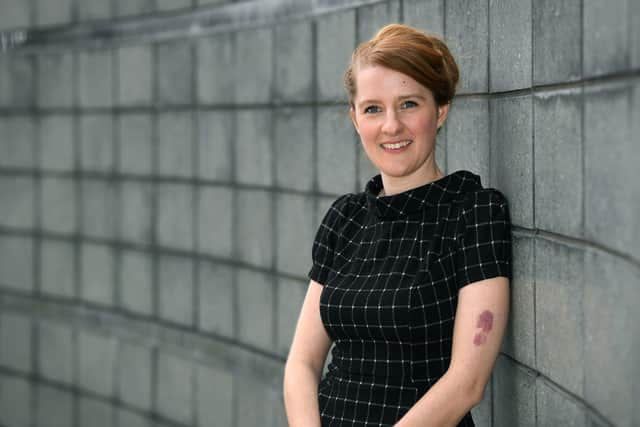Opportunity Areas; key lessons over raising school standards – Fiona Spellman


In Opportunity Areas, he has a ready-made policy package that could help him do just that, and SHINE wholeheartedly supports calls made by both The Yorkshire Post and former Education Secretary Justine Greening, for an expansion of this programme across Yorkshire and the rest of the Northern Powerhouse.
However, it is important that we apply learning from the early pilots in order to deliver real change.
Advertisement
Hide AdAdvertisement
Hide AdOpportunity Areas were a hugely important moment in education because, for the first time in many years, there was an acknowledgement that schools don’t exist as isolated centres of performance but are instead part of a complex social fabric which is rooted in place and community.


It is no accident that many of the least educationally successful areas in our country have also suffered most economically.
Schools are sometimes where inequalities in society are most visible, but often the roots of this lie beyond the classroom, and to truly address children’s outcomes in school we have to be prepared to tackle some of the broader challenges in their lives.
Opportunity Areas have given a hugely welcome focus to sharing learning of what works in raising standards in deprived areas, and they have helped encourage local government, the voluntary sector and businesses to work together to give children the opportunity to achieve their potential.
Advertisement
Hide AdAdvertisement
Hide AdThere are early signs of promise in many of them, showing that particular interventions or programmes have begun to deliver impact, but long-term challenges require long-term solutions and we cannot afford to abandon these places in favour of a broader range of areas, nor to ignore some important lessons that have emerged from the initial pilots.


Working with our partners across the Northern Powerhouse Education Consortium, we are advocating for the following steps to be taken in order to ensure that future Opportunity Areas build upon the successes of the initial policy and maximise the chances of the funding making an impact over time.
* There needs to be clearer, more cohesive and more thorough methodology to underpin and plan the work within place and Opportunity Areas.
* There need to be more local voices and more local leadership, including from residents in the places that are being targeted for support.
Advertisement
Hide AdAdvertisement
Hide Ad* All local agencies, including health, police and housing, need to come together with the aim of improving outcomes for children in the area.
* The geography of Opportunity Areas should be smaller, based on locally defined communities and typically the starting sizes of one or two local authority wards. This level of focus can present meaningful opportunities to bring together schools, charities and other community partners in relationships of trust.
* The focus of work should be broader, right from birth through to adulthood, involving much more co-ordinated work across the local public and community sectors – as opposed to prioritising small chunks of activity or standalone interventions.
* These should be based on international best practice, which emphasises the need for certain conditions to be in place in order for funds to be spent effectively.
Advertisement
Hide AdAdvertisement
Hide AdFrom our own experience of applying these principles in practice, it can take 12 months get to a stage where the appropriate groundwork has been done.
There are no quick fixes or immediate solutions to complex social problems and even the best-intentioned policies can fail to have the desired effect if there isn’t enough focus on effective implementation.
At time of unprecedented need and when the public finances are under enormous strain, it is incumbent on us all to ensure that any new funding can truly be deployed for maximum effect.
Fiona Spellman is CEO of SHINE, the North of England education charity based in Leeds.
Support The Yorkshire Post and become a subscriber today.
Advertisement
Hide AdAdvertisement
Hide AdYour subscription will help us to continue to bring quality news to the people of Yorkshire. In return, you’ll see fewer ads on site, get free access to our app and receive exclusive members-only offers.
So, please - if you can - pay for our work. Just £5 per month is the starting point. If you think that which we are trying to achieve is worth more, you can pay us what you think we are worth. By doing so, you will be investing in something that is becoming increasingly rare. Independent journalism that cares less about right and left and more about right and wrong. Journalism you can trust.
Thank you
James Mitchinson
Comment Guidelines
National World encourages reader discussion on our stories. User feedback, insights and back-and-forth exchanges add a rich layer of context to reporting. Please review our Community Guidelines before commenting.